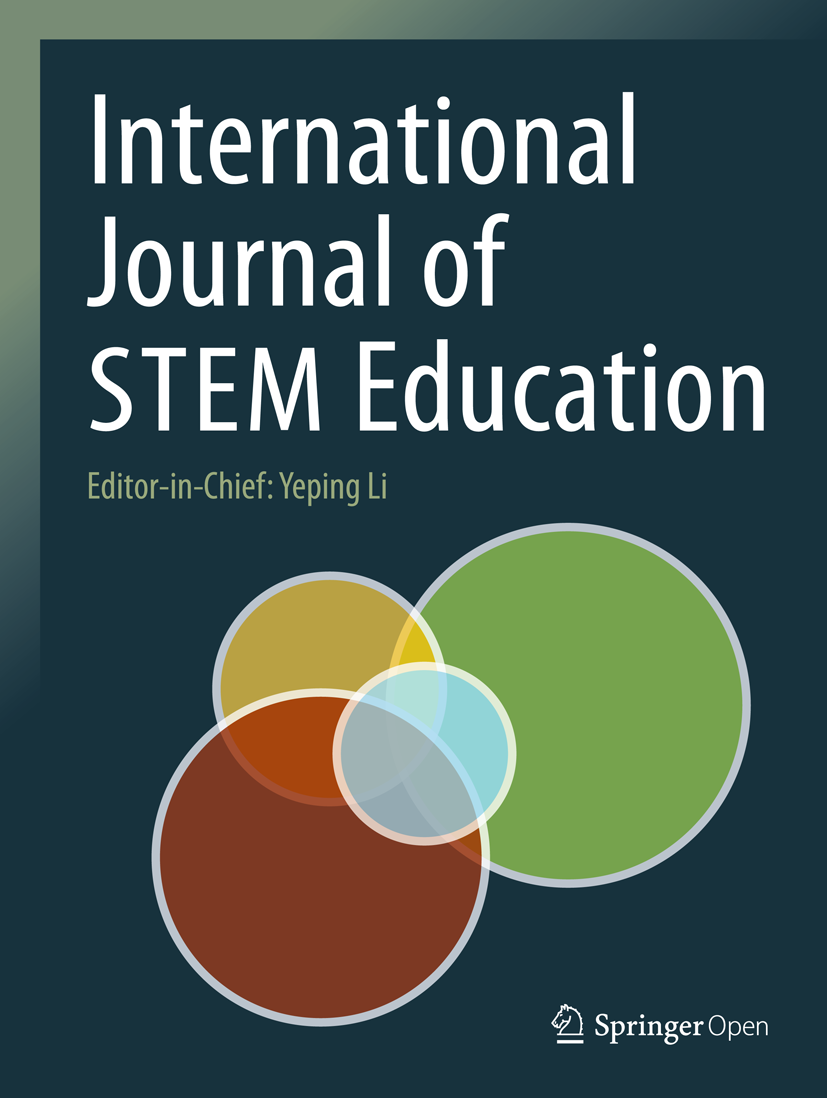帮助导师解决科学、技术、工程和数学研究培训中的科学交流问题,有助于被指导者坚持到底
IF 8
1区 教育学
Q1 EDUCATION & EDUCATIONAL RESEARCH
引用次数: 0
摘要
科学交流(SC)对新兴研究人员具有重要的社会认知、行为和职业相关益处,但导师和被指导者都认为培养科学交流技能具有挑战性。培训导师以有效指导科学交流技能的发展是否会对被指导者产生有意义的影响尚不清楚。科学交流促进卓越研究(SCOARE)项目自2018年起开展了指导SC技能技巧的教师培训研讨会。为了研究导师参加 SCOARE 研讨班对其匹配的博士和博士后被指导者(N = 477)的间接研讨班效果,我们在导师参加研讨班之前和之后 6 个月对被指导者进行了调查,并测量了他们的社会心理和行为结果。为了检验研修班的效果,并探索研修班的效果是否因被指导者的人口统计学特征(包括母语种类(讲标准化英语 [STE]、非标准化英语 [NSTE] 或其他语言 [L2]))而异,我们建立了多层次模型。在对基线分数进行调整后,与 W- 组相比,参加过 SCOARE 讲习班的导师的被指导者(W +)更多地参与演讲活动(β =0 .30,p = 0.016),对科学有更高的认同感(β = 0.20,p = 0.048),并且不太可能因为 SC 技能而重新考虑自己的职业生涯(β = - 0.39,p = 0.004)。在不同的人群中,参加过 SCOARE 研讨班的导师的被指导者在 SC 结果方面都有类似的改善。与博士生被指导者相比,博士后被指导者的科学认同感更高,而从事非研究密集型职业的意愿更低。比较三类母语不同的被指导者,与 STE 组相比,NSTE 组和 L2 组的被指导者更有可能因为 SC 技能而重新考虑自己的职业生涯,并且在基线和讲习班后都有更高的意愿从事非研究密集型职业,这表明语言背景有可能成为被指导者职业发展的障碍。导师对被指导者进行科学语言技能培训可以改善他们的社会心理和行为结果,包括科学认同感、发言频率以及因担心科学语言而重新考虑研究事业。本文章由计算机程序翻译,如有差异,请以英文原文为准。
Helping mentors address scientific communication in STEM research training helps their mentees stay the course
Scientific communication (SC) has important social-cognitive, behavioral, and career-related benefits for emerging researchers, but both mentors and mentees find development of SC skills challenging. Whether training mentors to effectively mentor development of SC skills could have a meaningful impact on mentees was not clear. The Scientific Communication Advances Research Excellence (SCOARE) project has conducted faculty training workshops in techniques for mentoring SC skills since 2018. To study indirect workshop effects of mentors’ attendance at the SCOARE workshop on their matched PhD and postdoctoral mentees (N = 477), we surveyed mentees before and 6 months after their mentors attended and measured their social-psychological and behavioral outcomes. To examine the effectiveness of the workshop and to explore whether workshop effects vary based on mentee demographic characteristics, including home language variety (speaker of standardized English [STE], non-standardized English [NSTE], or another language [L2]), we conducted multilevel models. After adjusting baseline scores, mentees of mentors who attended SCOARE workshops (W +) were more engaged in speaking activities (β =0 .30, p = 0.016), had higher science identity (β = 0.20, p = 0.048), and were less likely to reconsider their career due to SC skills (β = – 0.39, p = 0.004) than mentees in the W– group. Across demographic groups, mentees of mentors who attended SCOARE workshops showed similar improvements in SC outcomes. Postdoctoral mentees, compared to doctoral mentees, had higher science identity and lower intention to pursue a non-research-intensive career. Comparing mentees of the 3 categories of home language variety, both the NSTE and L2 groups, compared to the STE group, were more likely to reconsider their careers due to SC skills and had a higher intention to pursue non-research-intensive careers both at baseline and post-workshop, suggesting the possibility of language background as a barrier to mentee career progression. Mentor training for SC skill development can improve social-psychological and behavioral outcomes for mentees, including science identity, frequency of speaking, and reconsideration of research careers due to concerns about SC.
求助全文
通过发布文献求助,成功后即可免费获取论文全文。
去求助
来源期刊

International Journal of Stem Education
Social Sciences-Education
CiteScore
12.40
自引率
11.90%
发文量
68
审稿时长
13 weeks
期刊介绍:
The International Journal of STEM Education is a multidisciplinary journal in subject-content education that focuses on the study of teaching and learning in science, technology, engineering, and mathematics (STEM). It is being established as a brand new, forward looking journal in the field of education. As a peer-reviewed journal, it is positioned to promote research and educational development in the rapidly evolving field of STEM education around the world.
 求助内容:
求助内容: 应助结果提醒方式:
应助结果提醒方式:


